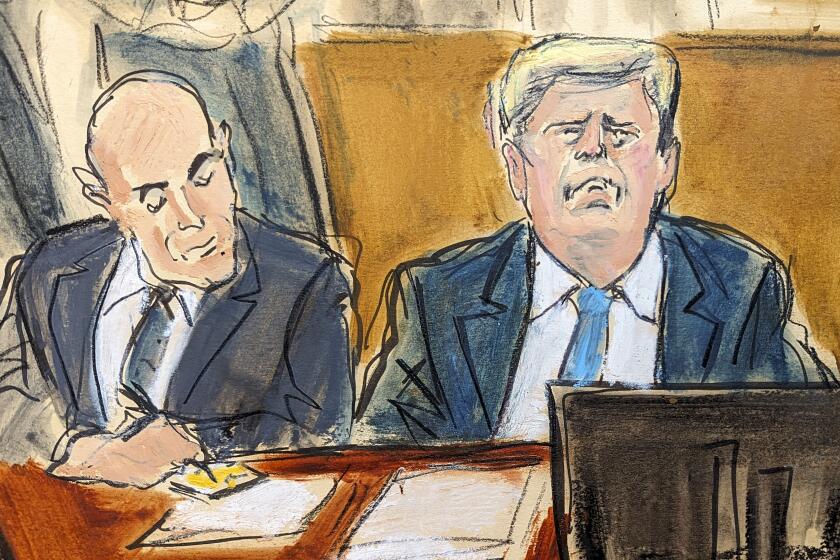Key Economic Advisor to White House Resigns Post
R. Glenn Hubbard, chairman of the White House Council of Economic Advisers and the sole survivor of President Bush’s original economic team, resigned Wednesday. He will be replaced by conservative Harvard economist N. Gregory Mankiw.
Hubbard, 44, was the chief architect of the president’s dividend tax cut plan, which the administration estimates would slash federal levies by more than $380 billion over 10 years and which many in Congress believe would reduce them still further.
The proposal, which was warmly received by economists as correcting a flaw in the tax system, has encountered heavy sailing on Capitol Hill, where it has been criticized as unnecessary, overly complicated and a sop to the rich.
Hubbard’s departure was widely expected after he apparently lost out in a bid last month to become the No. 2 figure at the Treasury Department. In his letter of resignation, he said his primary concern was for his family, which continued to live in New York City while Hubbard was on leave from Columbia University.
The White House said Wednesday that Bush intended to nominate Mankiw to chair the council.
The 45-year-old economist is perhaps best-known beyond academic circles for snaring the first million-dollar advance for a textbook. He was a staff economist with the council in 1982 and 1983.
Some of Mankiw’s recent research has dealt with Social Security, inflation targeting for central banks and the effects of budget deficits. In 1998, he was co-author of a paper titled “The Deficit Gamble” that argued government budget gaps do not put affect interest rates as much as many economists believe.
“The historical behavior of interest rates and growth rates in U.S. data suggest that the government can, with a high probability, run temporary budget deficits and then roll over the resulting government debt forever,” the paper said.
“This conclusion does not imply that deficits are good policy, for an attempt to roll over debt forever might fail. But the adverse effects of deficits, rather than being inevitable, occur with only a small probability.”
Such views could prove useful to the administration, which has already announced that it expects deficits of more than $300 billion for the next several years, and, with the estimated cost of a war with Iraq rising quickly, possibly even larger ones.
Before Wednesday’s resignation, Hubbard was seen as something of a rising star on Bush’s economic team because of his role in the dividend tax cut and his survival of a purge that sent both the president’s first Treasury secretary and his chief economic advisor packing.
Part of Hubbard’s success stemmed from his ability to argue earnestly -- and seemingly without political intent -- that Washington policy should focus on growth and pay comparatively little attention to the fact that the primary beneficiaries of tax cuts are the rich.
More to Read
Get the L.A. Times Politics newsletter
Deeply reported insights into legislation, politics and policy from Sacramento, Washington and beyond. In your inbox three times per week.
You may occasionally receive promotional content from the Los Angeles Times.






